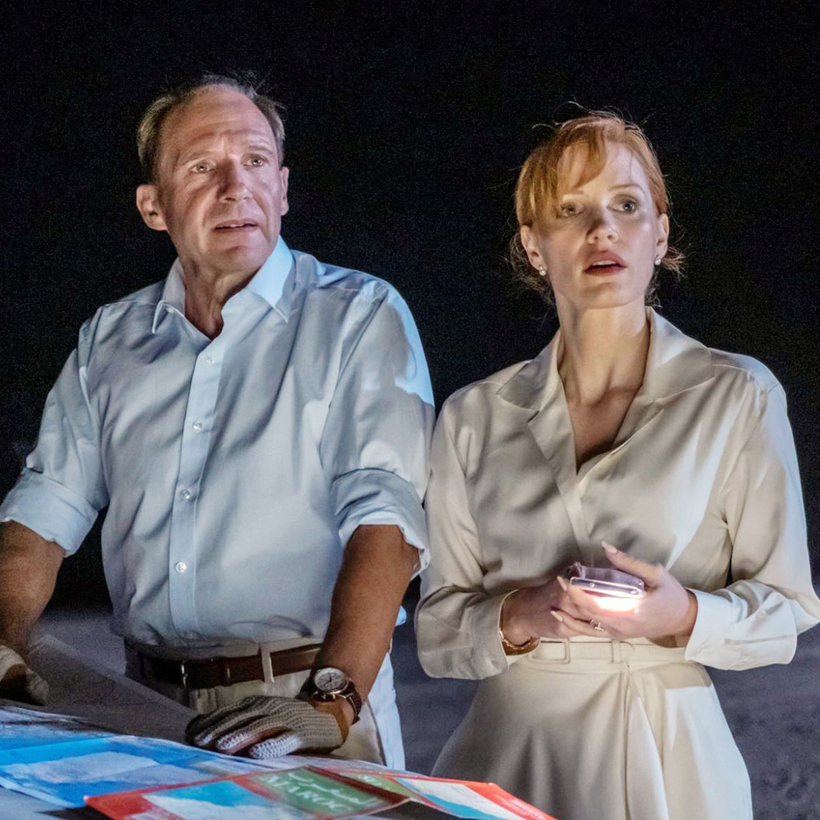In July 2000, as a sandstorm raged in Erfoud, Morocco, the British writer Lawrence Osborne and his French girlfriend were cocooned in a small, hot room in the Hotel Tafilalet. They were trapped and agitated, coming off another hysterical row which would soon become a nightly event. Osborne was writing an article for The New York Times Magazine about child labor in the Moroccan fossil trade at the time, spending his days shaking the calloused hands of eight-year-old excavators.
Twelve years later, Osborne published The Forgiven, a novel about an unhappy middle-aged couple traveling to Morocco for a hedonistic weekend at a friend’s villa. On the drive there, the couple accidentally run over a young fossil trader, stuff his body in the boot of the car, and arrive at the villa hoping to escape judgment.
Now The Forgiven has been adapted into a film by the Irish-English writer and director John Michael McDonagh (brother of Academy Award winner Martin McDonagh). Starring Jessica Chastain and Ralph Fiennes, it premieres at the Tribeca Film Festival on June 14 and will be released shortly after.

“The whole trip in 2000 was horrible, actually,” Osborne tells me over the phone, chuckling. “John found the hotel where I had that ridiculous fight with my girlfriend during a sandstorm. The movie is incredibly geographically accurate. He used G.P.S. and retraced my trip, place by place. All the locations in the movie and the novel are from my notes from that trip.”
But the main premise of the novel didn’t come from Osborne’s stay in Morocco. It was a story told to him by his former New York literary agent, Emma Parry. “Emma told me this story that happened to a friend of hers. I took it from there. The backstories are mine, but the premise of killing a boy, putting him in the boot of the car, and taking his body to the party … that was too good not to use,” Osborne says. “At some point will someone come forward and be like, That was me!? It hasn’t happened yet. But, yes, the novel is based on a real story.”
Today, Osborne, 63, lives in Bangkok, Thailand, which is the setting of his most recent novel, The Glass Kingdom, currently in development at Apple. “I originally moved to Bangkok so I could quit living like a student,” Osborne says. “But now I live here because I like it.”
McDonagh has mentioned that he was excited to make a film with complex Arab characters, who he feels are usually portrayed either as terrorists or saints. “It’s been funny reading some critics grapple with their feelings,” Osborne says. “All they see are the rich white characters. They like to flagellate those … but they don’t even mention the Moroccans. It’s like the Moroccans don’t even exist.”
He continues, “Mourad Zaoui plays Hamid, the moral center of the book and the film. Hamid is a conservative Muslim and guides the audience through the morality of the story. He’s not a Westernized person. He’s a traditional, religious one. I didn’t reject this perspective in the novel. I find it sympathetic. Moroccans who’ve seen the film notice it immediately.”
Osborne is a bit of a cinephile, and The Forgiven was influenced by Mike Nichols’s Who’s Afraid of Virginia Woolf? and John Huston’s The Night of the Iguana. But he never wrote it with a possible film adaptation in mind. “When The Forgiven was first offered on, I was astonished. I wasn’t expecting it at all,” Osborne says. “Novelists normally hate the adaptations of their books. Almost without exception.” But, Osborne says, “I have a great relationship with [McDonagh]. We’re good friends. He was very respectful and attentive to the book and attentive to me.”
The Forgiven will be available for streaming on June 17, following its Tribeca Film Festival premiere
York Underwood is an Iceland-based writer
